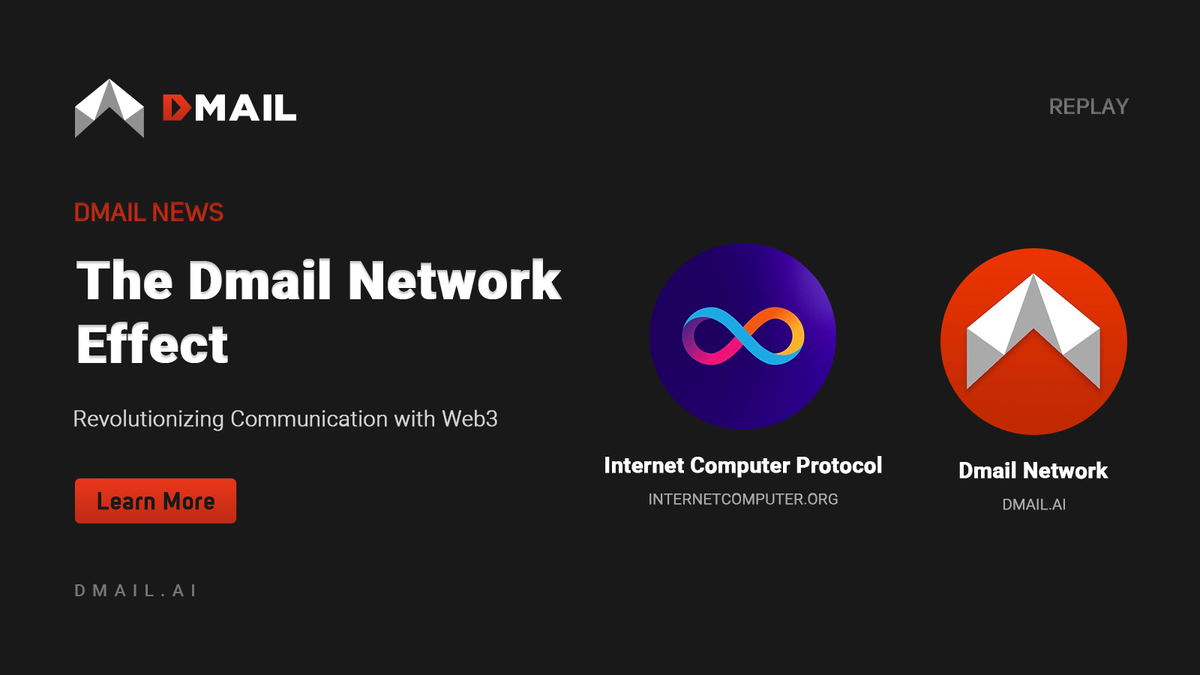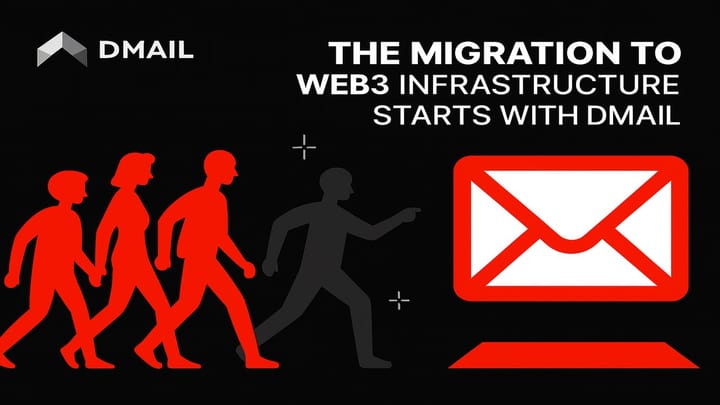Revolutionizing Communication with Web3: The Dmail Network Effect
At the heart of Dmail lies the Internet Computer Protocol (ICP), a revolutionary framework that aims to restore the original spirit of the internet – open, innovative, and creative.

In a recent episode of The Agenda podcast by Cointelegraph, co-hosts Jonathan DeYoung and Ray Salmond sat down with Daniel James, Co-Founder of Dmail, to explore how Web3 technology is reshaping email and messaging services for the better. Dmail, built on the Internet Computer Protocol (ICP), embodies the principles of decentralization, interoperability, and user empowerment, offering a groundbreaking alternative to traditional email providers like Gmail and Proton Mail. Let's delve into the key insights from the interview and understand why Dmail is gaining traction in the realm of decentralized communication.
Restoring the Internet's Roots with ICP
At the heart of Dmail lies the Internet Computer Protocol (ICP), a revolutionary framework that aims to restore the original spirit of the internet – open, innovative, and creative. By leveraging ICP, Dmail empowers users and developers, decentralizing control and fostering collaboration. With features like interoperability, permanent APIs, and ownerless applications, ICP enables seamless integration and encourages innovation across the ecosystem. Moreover, by simplifying the technology stack and improving operational efficiency, ICP lays the foundation for a more robust and resilient email infrastructure.
Decentralized Alternatives and Emerging Vulnerabilities
In an era marked by growing concerns over data privacy and security, traditional email providers are facing unprecedented challenges. Dmail offers a decentralized alternative, prioritizing user privacy, data ownership, and security. Unlike centralized platforms that exploit user data for profit, Dmail ensures full data ownership and provides monetization opportunities for user activities. With nearly 9 million registered users and 170 million sent messages, Dmail is rapidly emerging as a leading player in the decentralized communication space, offering AI-enhanced encrypted email services powered by innovative ICP technology.
The Reverse Gas Model: Incentivizing Development and Community Engagement
One of the distinguishing features of Dmail is its implementation of the Reverse Gas Model, a paradigm shift in the traditional fee structure of blockchain networks. By rewarding developers with ICP tokens for optimizing code and minimizing resource consumption, Dmail incentivizes continuous improvement and innovation. This not only reduces costs for users but also enhances scalability and fosters community engagement. With integrated support for 20 chains, Dmail serves as a flagship project for multichain adoption, leveraging the transformative potential of ICP to drive innovation and growth.
Conclusion
As the digital landscape continues to evolve, the importance of decentralized communication platforms like Dmail cannot be overstated. By harnessing the power of Web3 technology and embracing the principles of decentralization, interoperability, and user empowerment, Dmail is redefining the future of email services. With its commitment to privacy, security, and innovation, Dmail stands as a beacon of hope in an era marked by data exploitation and centralized control. As we look ahead, Dmail remains dedicated to empowering users, fostering collaboration, and shaping a more decentralized and inclusive internet for all.

Connect with Dmail: Website | Twitter | Discord | Github | Telegram





Comments ()